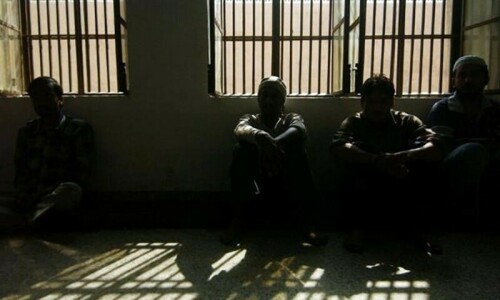ISLAMABAD: Amb. Dr Maleeha Lodhi stated on Monday that Pakistan is faced with the stark choice to persist in a state of governance failure and societal challenges or to transform through reforms that prioritize governance improvement and public welfare over elite interests.
“This choice will determine the fate and fortunes of the country,” Dr. Lodhi said at the launch of the book she edited, “Pakistan - Search for Stability.”
The book launch at the Institute of Strategic Studies Islamabad (ISSI), a government-funded think tank.
“Pakistan is at an inflection point, locked in a state of instability, with its promising potential remaining unrealized,” she said.
Dr Lodhi, who has served as Pakistan’s envoy at the UN and in UK and US, recalled that since she edited her initial publication ‘Pakistan: Beyond the Crisis State’ over two decades ago, which held optimism for Pakistan’s potential to overcome its crises, the country finds itself deeper in turmoil.
Now, in its 76th year of independence, she maintained, Pakistan faces a ‘polycrisis’—an entanglement of governance, economic, political, security, and demographic crises that have intensified and converged, compounding the country’s challenges far beyond the scope of any single issue identified earlier. This progression, she said, suggests an urgent need for more comprehensive and multifaceted solutions to navigate an increasingly complex crisis landscape.
Explaining the reasons behind Pakistan’s elusive search for stability, she said, “Pakistan’s search for stability has been frustrated by lack of governance, rule without law, political disruptions, visionless leadership and of course the headwinds from a volatile neighborhood that has posed enduring security dilemmas.”
She argued that Pakistan may have in the past navigated through numerous challenges and crises through its inherent resilience, but the systemic issues of today are distinctively different and cannot be deferred any longer.
Moreover, they must be addressed collectively rather than individually if Pakistan aims to progress towards a future marked by economic development, advancement, and prosperity, she maintained.
Director General ISSI Amb. Sohail Mahmood, in his remarks on this occasion, said, “The book’s prescription, keeping in view Pakistan’s particular context and also drawing upon the experience of other countries, is clear and unambiguous: Visionary leadership supported by a competent team committed to reform and transformative change.”
The Book: This volume comprises essays contributed by well know professionals, all unified in their belief that Pakistan has the potential to alter its trajectory, solve its problems, and surmount its challenges, setting it on a path toward recovery and rejuvenation. On the basis of their expertise, they propose ideas and policy strategies aimed at fostering governance that is attuned to the needs of the people.
It showcases a range of viewpoints and perspectives, yet all authors share the conviction that meaningful change necessitates bold reforms, which they outline in their contributions. Furthermore, they concur that the people of Pakistan must take an active role in redefining and rescuing their country from its current predicament.
The topics addressed in this book span the wide spectrum of challenges facing Pakistan and the critical opportunities awaiting action.
It delves into governance, civil-military dynamics, economic rejuvenation, internal and external security issues, demographic shifts, human development, climate change, religious extremism, international relations, and women’s roles, offering insights on addressing these concerns.
A recurring theme throughout the text is the emergence of a robust state that serves its citizens rather than a select few, achievable only through a comprehensive reform agenda that confronts Pakistan’s deep-seated and structural challenges, ensuring its long-term stability.
Published in Dawn, March 5th, 2024











































